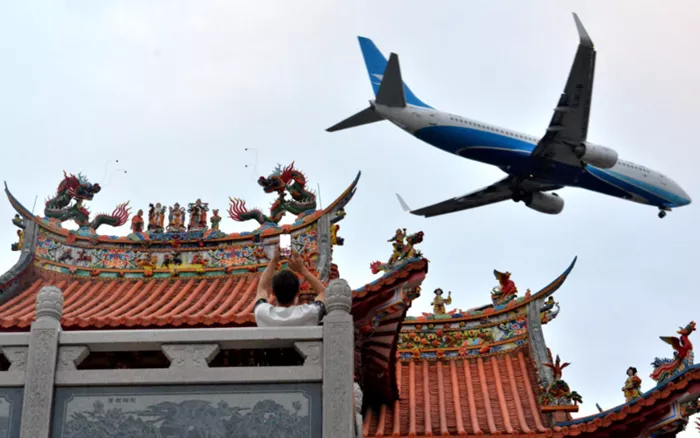Since the introduction of visa exemptions in late 2023, China has seen a significant rise in foreign tourist arrivals. The country’s visa-free policies, which include mutual exemptions, unilateral waivers for select countries, and a 144-hour visa-free transit policy, have reduced both the time and financial costs for travelers. These changes have also made stopovers in China more appealing.
In the first seven months of 2024, China welcomed 17.25 million foreign tourists, a dramatic 129.9% increase compared to the same period in 2023. While this surge reflects China’s growing popularity as a travel destination, it also carries broader implications for both the country and the international community. The increase in inbound tourism has the potential to improve diplomatic relations and foster mutual understanding in a world that is becoming more polarized.
Tourism is proving to be a boon for China’s economy, which is facing slower growth. The World Bank has projected China’s GDP to grow by just 4.8% in 2024, indicating a need for structural reforms to maintain its economic momentum. Tourist spending on accommodations, food, transportation, and attractions provides a valuable economic boost. This influx of international visitors supports the broader tourism industry, creating jobs, particularly for young people facing high unemployment.
Beyond immediate financial benefits, foreign tourists’ spending can stimulate the wider economy, helping offset weaker domestic demand. However, there are risks to relying on tourism as a primary source of growth. Economic uncertainty, shifts in global travel patterns, geopolitical tensions, and potential health crises could all undermine this sector. Therefore, China must approach tourism with a long-term economic strategy.
The visa exemptions also serve as a diplomatic tool, aligning with China’s broader soft power strategy. By removing travel barriers, China encourages more visitors to experience the country firsthand, challenging negative narratives often portrayed in Western media. The role of international influencers and bloggers has been crucial in this effort. These figures, who often have more credibility than traditional advertising, are reshaping global perceptions of China, particularly among younger Western audiences.
While Western media tends to highlight isolated incidents involving tourists, such as the 2024 stabbing of four U.S. teachers in Northeast China, social media influencers offer a more nuanced portrayal. They showcase China’s cultural heritage, modern infrastructure, and vibrant urban life, providing a more balanced view of the country.
As global polarization rises, tourism plays a key role in fostering people-to-people exchanges. China’s reaffirmation of its open-door policy, announced at the Chinese Communist Party’s 20th Central Committee meeting in July 2024, reflects its commitment to cultural diplomacy. Amid growing trade protectionism and geopolitical tension, visa-free travel aligns with China’s foreign policy goals, such as the Belt and Road Initiative. The hope is that increased exposure to Chinese culture will reduce misunderstandings and promote global cooperation.
However, tourism also presents challenges. Overtourism — when tourist numbers overwhelm local infrastructure and resources — is a growing concern worldwide. Popular destinations like Barcelona have faced such issues, and China may encounter similar problems, especially in major tourist hubs where both domestic and foreign visitors strain local resources.
Some cities, including Chongqing, are already advising locals to stay away from popular attractions during peak periods. While such measures help manage overcrowding, they can create resentment among residents who feel displaced. Additionally, competition for public services, transport, and amenities can lead to social tensions if locals perceive their quality of life is being compromised by the influx of tourists.
To avoid these pitfalls, China must balance the benefits of tourism with the needs of its residents. Effective urban planning, infrastructure improvements, and fair distribution of resources will be crucial in preventing the negative effects of overtourism.
While China’s visa-free policies are likely to continue due to their economic and diplomatic benefits, careful management is essential for sustainability. The government must ensure that the advantages of tourism are shared widely, especially with local communities that could be negatively affected by overcrowding. Tourism should serve as a catalyst for mutual understanding and shared prosperity, not exacerbate existing social inequalities.
To maintain the momentum of inbound tourism, authorities must keep improving the travel experience for foreign visitors. Regular reviews of visa policies and visitor flows will help ensure that the benefits of tourism continue to outweigh the challenges. Additionally, China’s large overseas Chinese population presents a valuable market for tourism, and policymakers could explore new strategies to encourage these travelers to return.
In conclusion, while China’s visa exemptions have boosted tourism and furthered the country’s economic and diplomatic goals, the key to their long-term success will be striking a balance between economic growth and the well-being of local communities. This approach will help China maintain its image as a welcoming and open nation while ensuring that tourism remains a sustainable driver of prosperity.
Related topics:
- Ramaswamy Urges Unity, Stands by Trump’s Immigration Plan
- Trump’s New Border Czar, Tom Homan, Unveils Bold Immigration Strategy
- Trump’s Border Czar Tells Critics: ‘Legal Immigrants Are Completely Safe’


